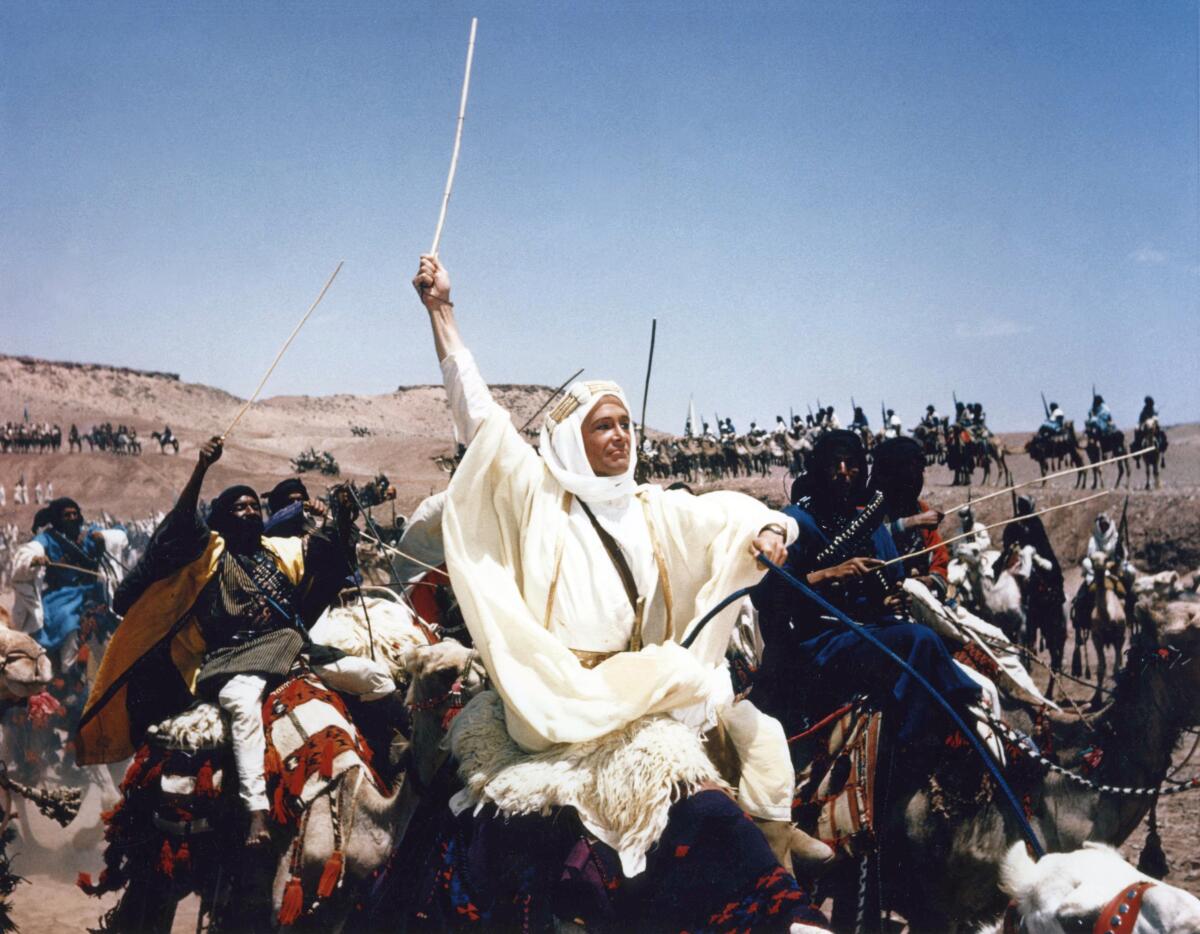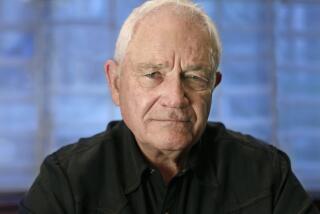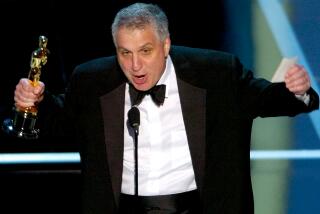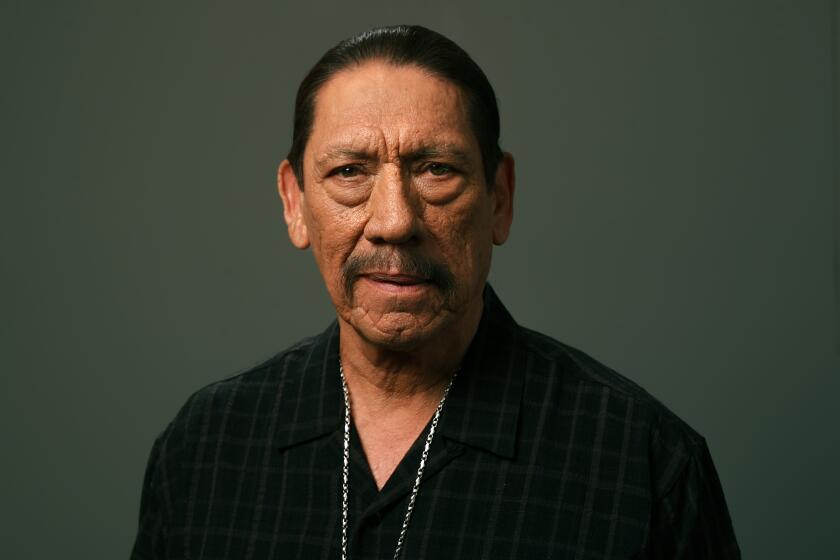From the Archives: ‘Lawrence’ superb but exasperating: Desert hero remains enigma in long, astounding film

“Lawrence of Arabia” is the longest picture I have ever sat through, if not in temporal time, then in my time. It lasts four hours, counting an intermission. It is also one of the most magnificent pictures, if not the most magnificent, and one of the most exasperating.
You begin to perceive I am filled with contradictions, but in this I have nothing on T.E. Lawrence, the central protagonist of this story, who was known as everything from lieutenant to colonel in the British army of World War I and to his Arab friends, of whom there were many, as “El Aurens.”
The production was screened in a weekend of previews and an official premiere Sunday night at the Criterion Theater here. It bows in Beverly Hills next Friday night. A Columbia release, it was produced by Sam Spiegel and David Lean (Lean also directed) as a follow-up to their “Bridge on the River Kwai.” This time they sought a fellow who would be at least as “eccentric” as their Col. Nicholson, and found him, beyond their wildest dreams, in Col. Lawrence. Curiously, their version of the Lawrence legend reveals some of the same strengths and weaknesses of “Kwai” — except that it runs at least an hour longer and is infinitely more complex.
Setting out, apparently, with the premise that the man is unexplainable, they have spent four hours explaining him. The evening wears on and on and emotional fatigue sets in till at last there are no more deserts to conquer and the end is reached.
We have already seen Lawrence killed in a motorcycle accident in the first reel, so there is no surprise in that quarter. To the last he remains an enigma, and I do not have the foggiest notion whether he was hero or madman. In the words of playwright Robert Bolt, whose screenplay this is, Lawrence was “a man for all seasons” or none.
Bolt’s writing is by turns realistically evocative and poetic, as it should be, but he is also guilty of stretches that are incoherent. This is almost inescapably true of some of the dialogue as spoken as well, but otherwise, Lean has coaxed generally superb performances from his actors and a startlingly versatile one, his first on the screen, from young Peter O’Toole as Lawrence. He is a cross between Alan Ladd and the late Errol Flynn and more striking than either.
Incidentally, I use “actors” advisedly. Hardly a female is glimpsed from start to finish. Perhaps symbolically — though the few hints that Lawrence may have been homosexual are as ambiguous as the rest of him.
The physical production with which Spiegel and Lean have surrounded the man’s odysseys, in beauty and mystery and terror, beggars description. The effect is that of 20 “Beau Gestes” rolled into one, or of a biblical spectacle reenacted in the 20th century. The awesome majesty of the landscapes in Jordan and elsewhere, the mass movements of Bedouins and British and Turks with, of course, the ever-present camels, sweep against the eye long after one has lost the ability to exclaim astonishment over them. And all this is Technicolor and Super Panavision 70, the finest process, under F.A. Young as director of photography. Maurice Jarre composed a score to match.
Splendid cast
For those unfamiliar with the Lawrence legend, briefly, the picture begins with the dispatching in 1916 of Lawrence, the young subaltern, from Cairo to investigate and if possible encourage the Arab revolt against the Turks in World War I. Nobody guessed that he was practically to turn it into his own war.
Seven stars are named and may be cited along with O’Toole for medals of honor: Alec Guinness as the suave, scheming Prince Faisal, leader of the revolt; Jack Hawkins as Gen. Allenby, British commander in the Middle East and also shrewdly resourceful; Anthony Quinn as the hawk-nosed Sheik Auda, in the Turks’ pay at first; Anthony Quayle as Brighton, colonel devoted to Lawrence; Claude Rains as the politic Dryden of British intelligence; Arthur Kennedy, Yank war correspondent; and Jose Ferrer, the sadistic Turkish governor at Deraa.
Dashing sheik
Right up with them on every hard-fought inch of desert terrain is a handsome favorite of the Middle East, Omar Sharif, cast as the dashing Harith Sheik Ali. Also to be praised are Michel Ray and John Dimech as two Arab boys who attach themselves to Lawrence, only to die in serving him.
Obviously, Spiegel’s and Lean’s besetting sin is that they fell in love with their own film and refused to cut it — most seriously at the start, with nothing happening in a forward-moving-action sense for one and three-quarter hours. But “Lawrence of Arabia” will be tremendous box office anyway — helped rather than hindered, you can bet, by the very fact that it makes such an aggravating question mark out of Lawrence himself.
More to Read
Only good movies
Get the Indie Focus newsletter, Mark Olsen's weekly guide to the world of cinema.
You may occasionally receive promotional content from the Los Angeles Times.






